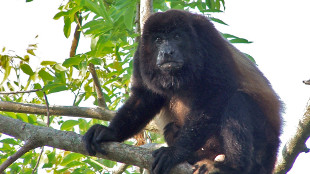 Howler monkeys are one of seven species of Mexican wildlife researchers found harboring antibiotic-resistant bacteria in a recent study.JURGI CRISTÓBAL-AZKARATE
Howler monkeys are one of seven species of Mexican wildlife researchers found harboring antibiotic-resistant bacteria in a recent study.JURGI CRISTÓBAL-AZKARATE
Wildlife biologist Jurgi Cristóbal-Azkarate is used to surprise encounters in the remote Mexican jungles he explores for science. But he never expected to find superbugs—bacteria that have developed a resistance to antibiotic medicines—in the feces of wild howler monkeys near Veracruz. These animals rarely see humans, much less drugs.
“I thought, how is this even possible? A monkey can’t have contact with that,” said Cristóbal-Azkarate, a lecturer at the University of Cambridge.
Antibiotic resistance is usually regarded as a threat in places like crowded big-city hospitals or factory-sized feedlots crammed with animals fattened for slaughter—the kinds of places where infection-fighting medicines are heavily used, and sometimes overused, giving microbes ample opportunity to evolve resistance to the drugs. But as Cristóbal-Azkarate’s 2014 Veracruz discovery showed, resistant ...





















